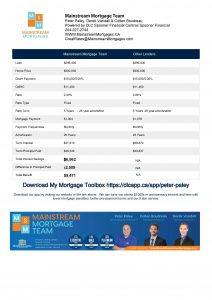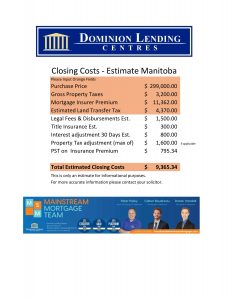All-in-one mortgages are an amazing tools for people who like to pay their mortgage down fast and save tens of $1,000s of dollars in interest.
- Manulife One lets you consolidate your debts to reduce your borrowing costs.
Your Manulife One account allows you to consolidate all of your debts (loans, credit cards, etc. – up to your borrowing limit) at a competitive, low interest rate. By repaying your higher-cost debt from your Manulife One account, you could reduce your interest costs and become debt-free sooner.
- Manulife One uses your income and savings to reduce your borrowing costs even further.
The best way to lower your borrowing costs is to pay down the principal that you borrowed. When you transfer your savings and/or short term investments into your Manulife One account, they go immediately towards paying down your borrowings. The same applies to your income. Every deposit that you make into the account reduces your debt, saving you interest costs until you need to withdraw funds again to pay for your monthly living expenses. Over time, what you save in interest will likely be more than what you would have earned.
- Manulife One simplifies your banking by bringing your income and debt together.
With a Manulife One account, your income and your debt are all together. So you don’t need to write cheques or transfer funds from one account to another. This way you never need to worry about missing a mortgage payment. Plus, your Manulife One account lets you:
- Pay bills by cheque or online (including pre-authorized bill payments)
- Pay for store purchases with a debit card (including getting cash back)
- Withdraw or deposit funds at ABMs
- Plus much more.
There’s just one difference – whatever is left over in your Manulife One account at the end of the day goes directly towards reducing your borrowing costs. So all your money is working for you as hard as it can – 24/7/365.
- Manulife One lets you enjoy financial flexibility.
Some traditional mortgages make it difficult or inconvenient to repay your debt more quickly. But with Manulife One, the debt in your Main Account is automatically reduced any time you make a deposit to your account. And, when you have extra money to deposit, such as a gift, bonus, tax refund, etc. your debt is automatically reduced. This gives you the financial flexibility to pay down your debt on your terms, not on your bank’s terms.
Manulife One also gives you the financial flexibility you need to deal with unexpected expenses or take advantage of great buying opportunities when they come up; and you don’t have to jump through hoops to do it. You can access the equity you’ve built up in your home (up to your borrowing limit) at any time just by writing a cheque, making a debit purchase or transferring money electronically.
With Manulife One, you’ve got the flexibility to repay your debt more quickly when you have extra money available and also to conveniently access that money when a spending need arises.
Watch our video and like it on YouTube and refer to our BLOG Post to Download more information. for more information. Please feel free to share with your clients or anyone you know looking for a mortgage.
Click the link below for our YouTube video!
If you have any clients looking for a mortgage pre-approval or mortgage advice please have them visit our website or call Peter at 204.227.2744.






